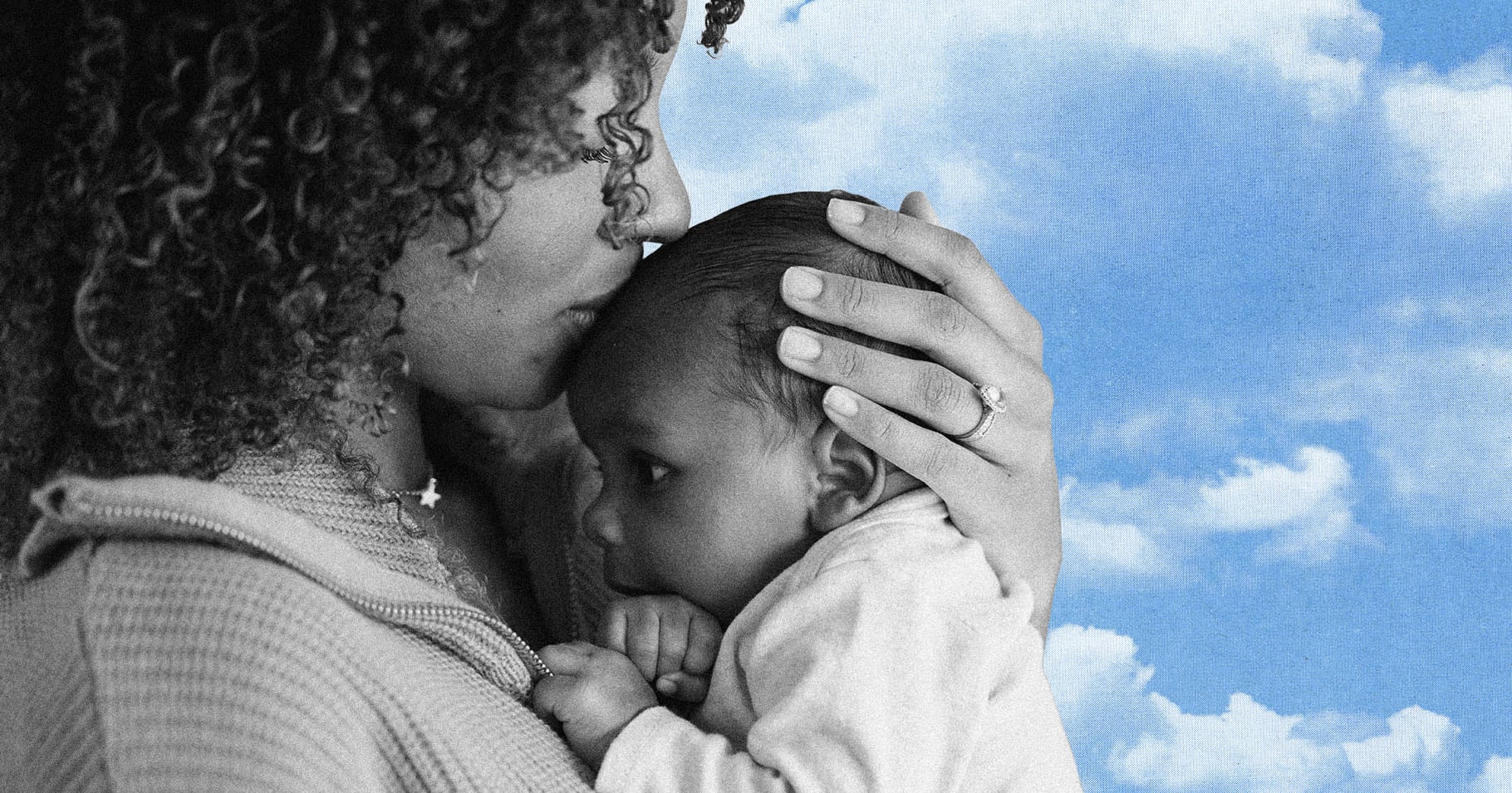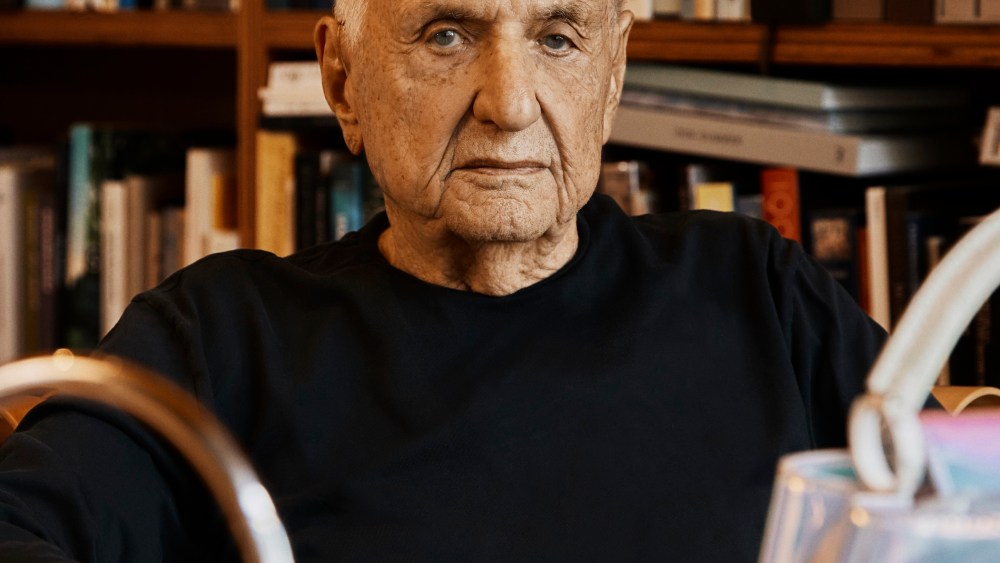There’s a lot no one warns you about when it comes to having a baby, like pregnancy nose, carpal tunnel, and an agonizing sharp pain that randomly shoots through your vagina. But perhaps the most surprising part of pregnancy isn’t physical at all: it’s the clarity that comes immediately after giving birth.
Known as “post-baby clarity,” this phenomenon is what happens when new parents experience an “aha” moment – an epiphany of sorts brought on by the physical act of birth, the emotional high of new parenthood, and the sudden responsibility of caring for another human.
“Parenthood acts as an emotional magnifying glass, bringing underlying issues to the surface with unprecedented intensity,” reproductive psychiatrist Sarah Oreck, MD, says. “What was once easy to overlook or suppress becomes impossible to ignore during the vulnerable postpartum period.”
Though this type of clarity can be about anything – the new parent themselves, their career, their future – most often, it’s about their relationships. And though post-baby clarity can be disorienting and challenging, it can also be “profoundly transformative,” Dr. Oreck says.
Experts Featured in This Article
Sarah Oreck, MD, MS, is a board-certified reproductive psychiatrist and therapist focused on women’s mental health. She is also the CEO and cofounder of Mavida Health, an online therapy program to help people in their motherhood journey.
What Is Post-Baby Clarity?
Post-baby clarity is not a recognized medical condition, but it’s a very real and common experience. “It’s a term people use to describe a kind of emotional and mental awakening that happens after becoming a parent,” Dr. Oreck says. “It’s that moment when you see your life, your relationships, and your priorities come into sharper focus.”
For some new parents, the clarity they experience can be comforting, which was the case for Hannah White, 32. After experiencing multiple miscarriages, White says she had prenatal depression when she became pregnant again, with her son. “With my miscarriage history, I could not enjoy the pregnancy,” White says. “I had little energy, I had no desire to get out of bed, and I’d never experienced depression quite like it.”
Two months after giving birth to her child, she experienced post-baby clarity. “From the moment our son was born, I realized my husband was building up my confidence. From making sure I was fed, changing diapers, waking up with me during late-night feeds, hugging me as I was crying during hard newborn days and nights, cleaning bottles and pump supplies – you name it, he did it,” White says.
After taking a photo of her son smiling in the Target parking lot, White realized her ability to find happiness and be a good mom was in large part thanks to her partner. “I am the best mom because I learned from the best dad,” she says.
“It’s that moment when you see your life, your relationships, and your priorities come into sharper focus.”
But not all post-baby clarity is reassuring. For some new parents, the post-baby clarity can expose red flags about their partner they may have previously ignored. This was the case for Mary*, 34, who met her partner when she was 17. Though she says she fell “hard and fast,” their relationship had its ups and downs. “I started picking up on his lying, and if we argued, he’d tell me that he hated me, never loved me, I was a mistake, and I was boring,” she says.
When she found out she was pregnant at 23, she was excited. But when she gave birth to her daughter, the post-baby clarity hit almost immediately. “She was born, and I actually couldn’t look at him the same. All my love went to my daughter, and I just knew we deserved better,” Mary says.
A few weeks later, Mary kicked her partner out of her house and moved back to her hometown where she met her now-husband. “I think having a daughter to protect woke me up,” she says.
Why Does Post-Baby Clarity Occur?
According to Dr. Oreck, post-baby clarity can occur based on a combination of hormonal shifts, identity changes, physical recovery, sleep deprivation, and the massive life transition that is becoming a parent.
On the physical level, it’s likely because of the drop in hormone levels immediately after giving birth, which can affect your mood and how you regulate your emotions, Dr. Oreck says. “At the same time, bonding hormones like oxytocin surge, which can create both heightened attachment and, in some cases, heightened awareness of disconnection,” she adds.
But on a deeper level, giving birth and raising a baby can fundamentally change your value system. “Values that seemed important before – career advancement, social obligations, material pursuits – may suddenly feel less important, while previously undervalued aspects like authentic relationships, personal boundaries, and meaningful work take on new significance,” Dr. Oreck says.
Transitioning to motherhood or becoming a new parent in general is also a huge identity shift. “You’re reevaluating who you are, what matters to you, and how you want to move through the world now that you’re responsible for another life,” Dr. Oreck says. “What felt tolerable before may suddenly feel unbearable – not because something with them has changed, but because you have.”
What to Do If You Experience Post-Baby Clarity
For Alison*, 41, her biggest regret is not trusting her post-baby clarity. It happened when her newborn son had an asthma attack at 8 weeks old, and he started to turn blue. “I woke up [my partner], and he said I had to take [my son] to the hospital alone because he had to wake up for work in a few hours,” she tells Popsugar. “I realized then he was not the person I thought he was.”
But even after the hospital incident, Alison says she ignored the clarity. Four years later, Alison and her partner divorced after she found out he was having an affair. “I’m grateful for the clarity, but I do wish I would have trusted it,” she says.
If you experience post-baby clarity, Dr. Oreck recommends looking at the epiphany as an opportunity and not a crisis. “Yes, it can be destabilizing, but it can also be empowering. Parenthood pushes us to grow, to confront ourselves, and to reevaluate our relationships. That’s not a sign that something is wrong, it’s a sign that you’re growing,” she says.
Whether you process your post-baby clarity through therapy or by giving yourself space to assess how you feel, accept that it’s OK to “outgrow people, patterns, or priorities as you step into this new version of yourself,” Dr. Oreck says.
At the end of the day, becoming a parent changes everything – including you – and sometimes, that shift is exactly what puts things into focus. Whether your post-baby clarity pushes you to walk away, grow closer with your partner, or simply look at your life a little differently, it’s always worth paying attention to.
*Names have been changed.
Taylor Andrews is the senior balance editor at Popsugar, specializing in topics relating to sex, relationships, dating, sexual health, mental health, travel, and more. With eight years of editorial experience, Taylor has a strong background in content creation and storytelling. Prior to joining PS in 2021, she worked at Cosmopolitan.




